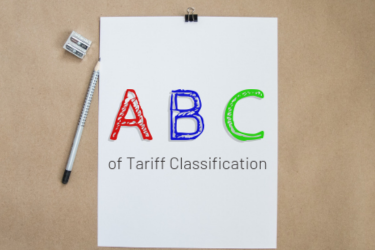
Amid ongoing tariff fluctuations, many importers are reassessing their Harmonized Tariff Schedule (HTS) classifications with greater care. As duties shift and enforcement tightens, the pressure to classify goods accurately—while minimizing costs—has never been higher. However, pursuing lower duty rates through classification carries both legal and financial risks.
Understanding the Legal Landscape
Importers are legally required to exercise “reasonable care” under US Customs and Border Protection (CBP) regulations. This standard places the burden on businesses to ensure their classifications are correct, thoroughly documented, and legally defensible.
Missteps in classification can result in serious violations under 19 U.S.C. § 1592—the statute governing customs fraud and negligence. CBP categorizes violations based on severity:
- Negligence – Failing to exercise reasonable care, regardless of intent.
- Gross Negligence – Acting with reckless disregard for compliance obligations.
- Fraud – Knowingly and willfully providing false or misleading information.
Importers found in violation may face steep penalties.
Why Proper Classification Matters Now More Than Ever
These legal risks are not theoretical. Recent CBP enforcement activity underscores how closely the agency is watching. In February 2025 alone, CBP completed 28 audits that uncovered $2.9 million in unpaid duties and fees resulting from improper classification. Including violations from prior years, CBP collected more than $74.5 million in total.
Just one month later, in March, the agency issued millions in penalties related to incorrect declarations—sending a strong signal that enforcement efforts are intensifying.
A Compliance-First Approach
Importers should not view CBP’s Penalty Program solely as punitive. Its purpose is also to drive better compliance practices by promoting accountability and self-correction. When classification issues arise, importers are expected to take immediate, proactive steps to resolve them.
This shift toward stricter enforcement makes it clear: compliance is not optional—it’s an essential part of doing business in today’s trade environment. At Mohawk Global Trade Advisors, we help clients take a compliance-first approach. Our classification services are designed to reduce risk, avoid penalties, and provide peace of mind in an increasingly complex trade environment.
While investing in compliance may seem costly up front, the potential consequences of inaction are far more expensive. Penalties, back duties, and reputational damage can significantly outweigh the price of preventive measures.
Accurate HTS classification is more than a best practice—it’s a legal requirement. Companies that treat classification solely as a cost-cutting measure may find themselves at odds with federal law.
Connect with our team today to strengthen your trade compliance program and safeguard your business against costly errors.
CBP Resources
- Informed Compliance Publications
- Trade Outreach Webinars
- Directives and Handbooks
- Rulings and Legal Decisions
Related Articles



